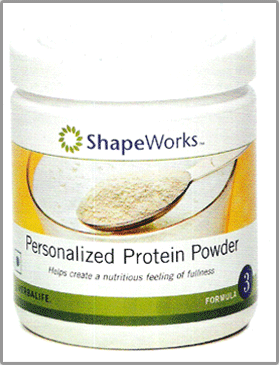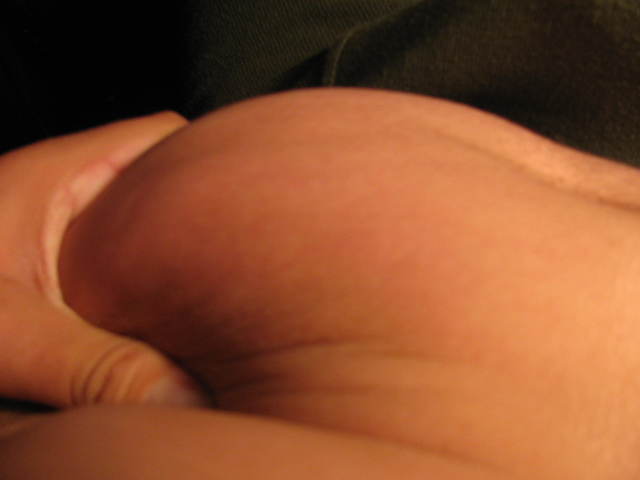Body Fat
Question
QUESTION: Dear Laura
Just wondering if you can help clarify a body fat issue for me. I weighed today on one of those scales that tests your body fat also. Mine came out at 35%. I was a bit surprised as I only weigh 111 pounds and I'm 5ft 3". Most people would call me skinny. I am big busted though (naturally) so I wonder if this is where the high body fat reading is coming from. Just wondered what you think.
Many thanks
ANSWER: Hi Lucy,
I am happy that you are using body fat as a guide rather than weight. However, there are a few limitations to biometric impedance especially from commercial scales. First, if you are not fully hydrated, there will be an incorrect reading. The remedy to this is to ensure proper hydration in the day and check it at night. Secondly, if you are menstruating, the measurements could be slightly off. Third, the measurements taken at the feet measure primarily lower body, while the measurements taken by hand measure primarily the upper body. If the fat on your body is not proportionate, you will have a higher reading on a foot measurement when body fat is primarily on the lower body. The fourth limitation is that a person with higher lean muscle will read incorrectly.
Biometric impedance is a measurement of fat in relation to lean muscle. What that means is that if you have low lean muscle, you very well could have a high percentage of fat even if you are low weight. It is not common to have a high, obese fat percentage rating with low weight. However, it can easily happen with very low lean muscle and high visceral (deep) or subcutaneous (surface) fat.
The only true way to know is to get a skin caliper body fat measurement at your doctor or local gym. The best way to use the scales is to use them only as a guide to recognize reduction rather than accurate measurements.
I hope this has helped you! Good luck in your health endeavors.
Laura
---------- FOLLOW-UP ----------
QUESTION: Hi Laura
thanks for your very informative and interesting answer.
Just wanted to clarify a couple of things: it was a commercial scales that I used but I have used the same scales for years and my body fat always comes up as around 35%. It measures it by sensors on the hands. I don't know how this worse I expect you might. It asks you to grip the handles on the side of the scales and that's how it does it so would ii be measuring mainly my upper body fat? That's where all my fat is. I don't have any from the hips down! For some reason when I gain weight it only (or mainly) goes to my torso and bust. I don't really get why but I do have (medically diagnosed due to genetic disorder) disproportionately long limbs compared to my very squat, short body.
Can I also clarify what this means?: 'However, it can easily happen with very low lean muscle and high visceral (deep) or subcutaneous (surface) fat.'
Also I have a connective tissue disorder would this be anything to do with my muscle/fat ratio?
Thanks!
Lucy
Your response explains a lot. If you were to take a biometric impedance test on a monitor that measures with foot pads rather than handgrips, your measurement will likely be different. I cannot overemphasize that the most accurate measurement of body fat, and consequently lean muscle, is skin calipers. The sensors on the machines measure left to right, not up and down. So essentially, you are getting reading of upper body predominantly.
What I meant by the statement about lean muscle, visceral fat, and subcutaneous fat is that even thin people can have a higher proportion of fat to muscle leading to obese fat percentages. For example, a thin elderly person might have a higher fat percentage because of age induced reductions in lean muscle. However, young people can have this type of result as well. Fat percentage simply means the ratio of fat to lean muscle. More lean muscle = lower fat percentage. Low lean muscle = greater fat percentage.
- Prev:fruit and meal plan khg72
- Next:Gain weight
Related Articles
-
Meal timing
Questionwhat time is best to drink a cup of milk and fruit juice
-
Diet/exercise for leaner muscles
QuestionHi Tanya, Im 511 and 164 lbs. I recently just lost 10 lb
-
Apple cidar Vinegar
Questionways to speed up your metabolism without eating? i heard
-
daily requirements
QuestionIs there a vitamin that has all of the daily requirements
-
How can I reach my goal?
QuestionHi, Laura. Im Madison. Im 16, 54, and I weigh around 180.
-
weight gaining
Questionmy name is Claire i am 22 years old and live a active lif




